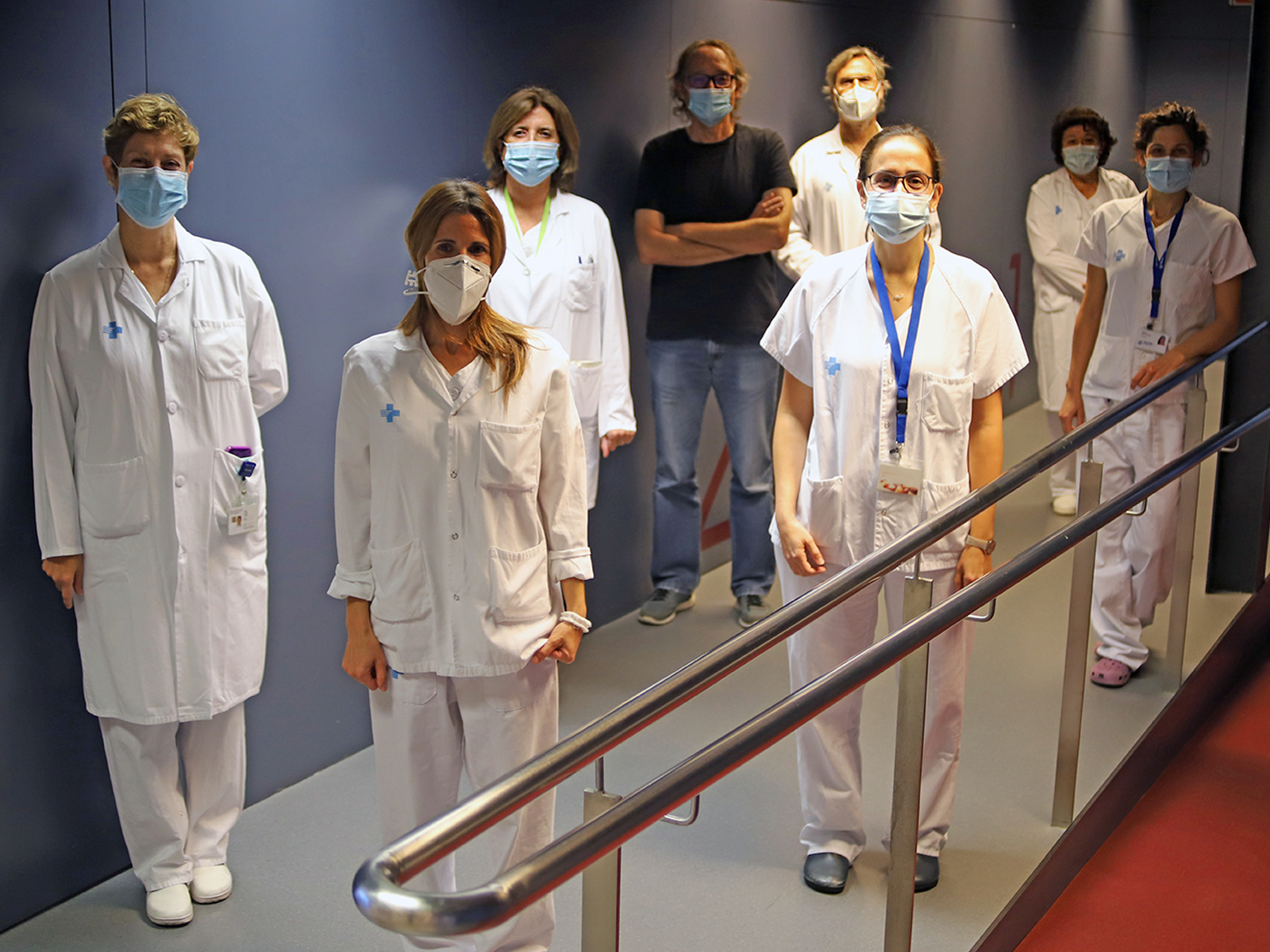Germans Trias joins the International study on using the BCG vaccine against COVID-19 in healthcare workers

The Can Ruti Campus joins an ambitious international study to test the possible protective effects of the anti-tuberculosis (BCG) vaccine against COVID-19. In Spain the provision is for 1,000 healthcare workers to take part. The Germans Trias i Pujol Hospital and Research Institute is taking part with Dr Antoni Rosell, Clinical Director of the Thorax Department at the hospital leading the project and the participation of the Pulmonology, Preventive Medicine and Pharmacy together with two research groups working on tuberculosis at the IGTP led by Dr Pere-Joan Cardona and Dr José Domínguez.
Until there is a specific vaccine for the coronavirus available worldwide, other methods of temporary protection against the effects of infection by the virus are needed. Work is being carried out on many medicines and other existing products. The BCG (Bacil de Calmette-Guérin) vaccine is showing promising results in several studies, but a large-scale trial is needed to show it is effective. The BRACE trial is designed to do just this, the clinical trial started in Australia this spring to test if the BCG vaccine could protect healthcare staff against COVID-19. Now Spain joins the study along with the Netherlands, United Kingdom and Australia with participants from many hospitals, including that at Can Ruti.
The clinical trial concentrates on healthcare workers, a group with increased exposure to this coronavirus.
"It is a controlled study with vaccine and placebo and any staff who work in a healthcare centre and/or has direct contact with patients can take part," explains Dr Antoni Rosell, Principal Investigator of the project at Germans Trias. "After the administration of the vaccine (or placebo) we will follow up on participants for 12 months. The vaccine will be effective if there are considerably fewer infections amongst participants who have received the BCG compared with those who received the placebo," continues Rosell.
The BCG vaccine was originally developed to protect against tuberculosis (TB), which means it is not a specific vaccine against the coronavirus. However, as well as protecting against TB the vaccine has been seen to give a general boost to the immune system.
"This immune reinforcement could provide extra protection in the case of infection with coronavirus, so we hope it will reduce the number of people infected and make the infections that take place less severe. We know that the vaccine protects against other respiratory infections," explains Dr José Dominguez, leader of a research group at the IGTP and member of team coordinating BRACE from Germans Trias.
"If the BCG vaccine proves to be effective it will be a much-needed addition to the arsenal of medications we have available now to fight COVID-19," concludes Rosell.
More participants, faster results
The trial started in Australia under the direction of Professor Nigel Curtis, researcher at Murdoch Children's Research Institute in Melbourne. In Europe the coordinator and promoter is the University Medical Centre (UMC) in Utrecht in the Netherlands.
"With the support of the Bill and Melinda Gates Foundation the BRACE Study has expanded to Europe with a total of 10,000 participants in the study worldwide," says Dr José Dominguez. "We know the BCG vaccine can protect against more than TB and the more participants we have in the trial, the earlier we will get results," he adds.
Currently, it is being carried out in seven centres in Australia, six in the Netherlands and six in Spain: the Germans Trias Hospital, the Mútua de Terrassa Hospital, the Virgen de Macarena de Sevilla Hospital, the Lozano Blesa de Saragossa Hospital, the Marqués de Valdecilla de Santander Hospital and the Cruces Hospital in Bilbao. Centres in Brazil have also recently joined the study.
